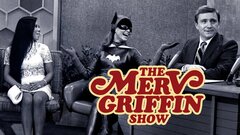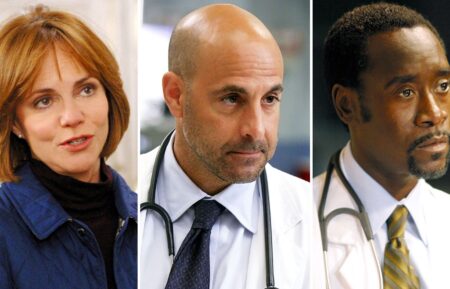The career of singer-actor Rosemary Clooney is actually two careers separated by a 20-year gulf of child-raising, marital troubles, and substance abuse. Part 1 began in 1945 at the age of 16 when Cincinnati radio station WLW hired the Maysville, Kentucky native and her 13-year old sister Betty to sing duets for $20 apiece. Appearances with local bands brought them to the attention of bandleader Tony Pastor, and 'The Clooney Sisters' debuted with his big band at Atlantic City's Steel Pier in 1947. After Betty opted for the quiet life of Cincinnati, Rosemary struck out on her own for NYC, signing a recording contract with Columbia which yielded the star-making hit "Come On-a My House" in 1951.
Hollywood beckoned and her appealing chirping style and cute personality made her an immediate screen star in movie musicals like "The Stars Are Singing" (her debut) opposite Anna Maria Alberghetti, "Here Come the Girls" (both 1953) with Bob Hope and "White Christmas" (1954), starring Bing Crosby, Danny Kaye and Vera-Allen.
Clooney's 1953 marriage to Academy Award-winning actor Jose Ferrer capped her whirlwind storybook ride to the top, and she settled down to motherhood after a stint hosting a TV program of music and songs, first as a syndicated vehicle ("The Rosemary Clooney Show" 1956) with Nelson Riddle as her music director and later under the aegis of NBC and Lux (known as "The Lux Show Starring Rosemary Clooney" 1957-58). She then disappeared from sight, periodically surfacing for appearances on the shows of her good friends Bob Hope and Bing Crosby, as well as some specials. There was the negative publicity surrounding her two divorces from Ferrer and the drug addiction and nervous breakdown she described in her harrowing 1977 autobiography "This For Remembrance," adapted as the 1982 CBS movie "Rosie: The Rosemary Clooney Story." Many people in the music business considered her finished. "She was so ill," remembers longtime Clooney friend Michael Feinstein, "that it was doubtful that she would ever sing again. So the fact that she came back is almost unbelievable."
But come back she did. While touring with Bing Crosby in the last year of his life, the opportunity presented itself for Clooney to record with the fledgling Concord Jazz label. Her first Concord effort "Everything Coming Up Rosie" (1977) plus a series of releases devoted to the music of Cole Porter, Irving Berlin and Johnny Mercer, among others, established her as one of the most persuasive interpreters of a song lyric. Since her first nomination for "Girl Singer" (1992), she has been a perennial Grammy nominee, movie soundtracks like "Married to the Mob" (1988) and "Radioland Murders" (1994) have featured her as a song performer, and her first-ever appearance at Carnegie Hall in 1991 led to subsequent triumphs at that venue. She has also acted on TV, perhaps most memorably as a Bible-toting murderess in the CBS movie "Sister Margaret and the Saturday Night Ladies" (1987) and as a singing Alzheimer's patient on two episodes during the first season of the NBC drama series "ER," starring her nephew George Clooney, for which she received an Emmy nomination.














































































